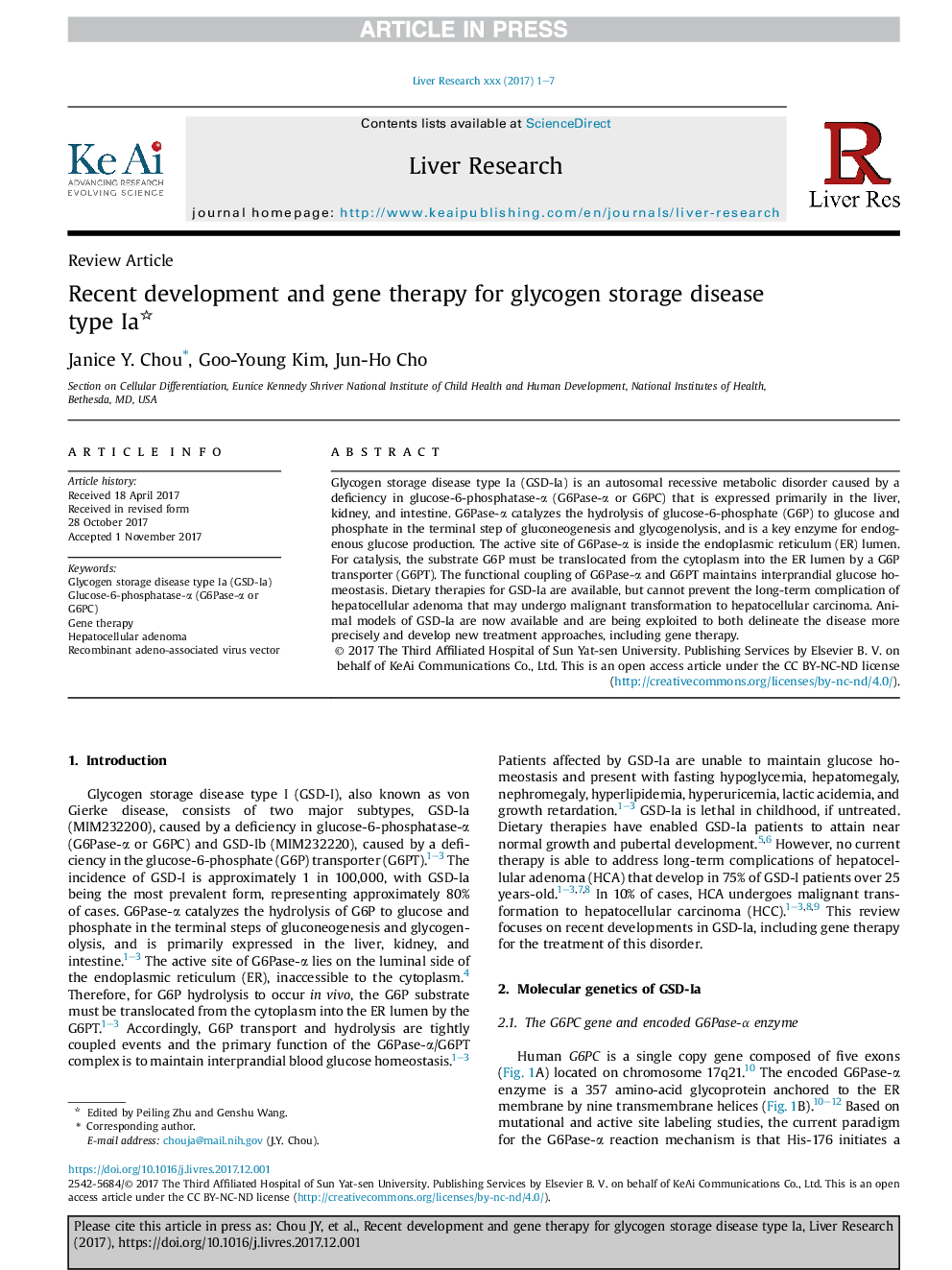| Article ID | Journal | Published Year | Pages | File Type |
|---|---|---|---|---|
| 8925932 | Liver Research | 2017 | 7 Pages |
Abstract
Glycogen storage disease type Ia (GSD-Ia) is an autosomal recessive metabolic disorder caused by a deficiency in glucose-6-phosphatase-α (G6Pase-α or G6PC) that is expressed primarily in the liver, kidney, and intestine. G6Pase-α catalyzes the hydrolysis of glucose-6-phosphate (G6P) to glucose and phosphate in the terminal step of gluconeogenesis and glycogenolysis, and is a key enzyme for endogenous glucose production. The active site of G6Pase-α is inside the endoplasmic reticulum (ER) lumen. For catalysis, the substrate G6P must be translocated from the cytoplasm into the ER lumen by a G6P transporter (G6PT). The functional coupling of G6Pase-α and G6PT maintains interprandial glucose homeostasis. Dietary therapies for GSD-Ia are available, but cannot prevent the long-term complication of hepatocellular adenoma that may undergo malignant transformation to hepatocellular carcinoma. Animal models of GSD-Ia are now available and are being exploited to both delineate the disease more precisely and develop new treatment approaches, including gene therapy.
Keywords
Related Topics
Health Sciences
Medicine and Dentistry
Hepatology
Authors
Janice Y. Chou, Goo-Young Kim, Jun-Ho Cho,
